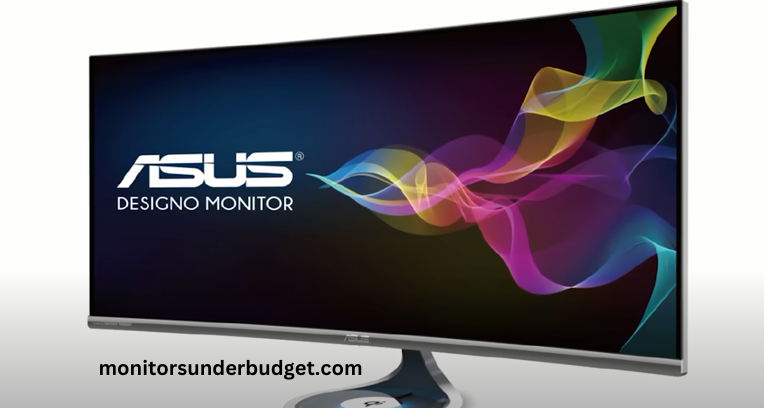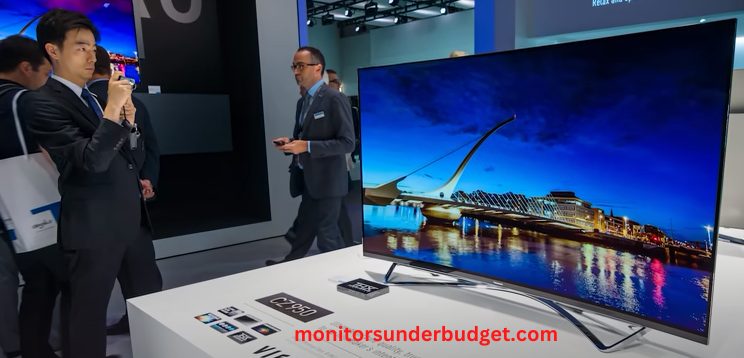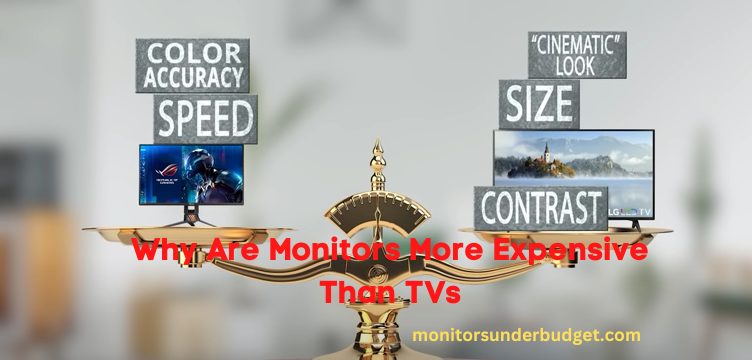It’s a common misconception that why are monitors more expensive than TVs. The truth is, they’re not. Monitors are less costly than TVs, comparing like-for-like features and specifications.
Why Are Monitors More Expensive Than TVs
However, a few key reasons why monitors tend to cost more than TVs. Firstly, monitors are designed for use with computers, so they generally have higher resolution screens and more input/output options. This means they can provide a better experience when used for gaming or watching movies.
Secondly, monitors tend to be built with higher quality materials than TVs. This is because they need to withstand the constant use and abuse that comes with being a computer peripheral.
Lastly, monitors usually come with a warranty that is longer than that of a TV. This is because they’re designed to last longer and provide a better experience over an extended period.
Overall, monitors are less expensive than TVs when you compare like-for-like features and specifications. However, there are some key reasons why they tend to cost more. These include their higher-quality screens, extended warranties, and better build quality.
Monitors are made up of smaller parts than TVs
Most people don’t know the difference between a monitor and a TV. They assume that since monitors are smaller, they must be less expensive to produce. The opposite is true. Monitors are more costly to manufacture than TVs.

The reason for this is that monitors use higher-quality components than TVs. For example, monitors typically have a higher resolution than TVs. They also have faster refresh rates, so they can display images without blurring or ghosting.
As a result, monitors provide a better viewing experience than TVs. However, this enhanced viewing experience comes at a price.
Monitors have a higher resolution than TVs
There’s a reason why monitors are more expensive than TVs. In a nutshell, it comes down to resolution. Monitors have a higher resolution than TVs to display sharper images and more detailed information. For businesses, this is essential for presentations and other work-related tasks.
For gamers, it can mean the difference between winning and losing. And for general users, it simply results in a better viewing experience. So if you’re looking for the best possible picture quality, you’ll need to invest in a monitor rather than a TV.
Monitors typically use less power than TVs
Monitors are more expensive than TVs for a variety of reasons. One is that they typically use less power, making them more energy-efficient. Additionally, monitors usually have a higher resolution than TVs, meaning they can display more detailed images.
Finally, monitors tend to be thinner than TVs, making them more space-efficient. For all these reasons, monitors are typically more expensive than TVs.
However, the price difference can vary depending on the specific model and features. Therefore, it is essential to compare different models before making a purchase.
TV manufacturers have to account for more variations in size, shape, and features when manufacturing TVs
TV manufacturers have to account for more variations in size, shape, and features when manufacturing TVs. This results in a higher unit cost and contributes to the overall higher price of TVs.

In addition, TVs require more processing power than monitors, which further drives up the cost. Finally, TVs are typically viewed from further away than monitors, so they need a higher resolution to appear sharp and clear.
This also adds to the cost of manufacturing a TV. While all of these factors contribute to the higher price of TVs, it is essential to remember that they also offer a much better viewing experience than monitors.
So, if you’re looking for the best possible viewing experience, you’ll need to be willing to pay a little extra for a TV.
Most people use their monitors for work or gaming, while TVs are used for watching movies and shows
Why are monitors more expensive than TVs? Most people use their monitors for work or gaming, while TVs are used for watching movies and shows. Monitors have a faster response time than TVs, which is essential for gamers who need to react quickly to what’s happening onscreen.
They also generally have a higher refresh rate so they can display a new image more frequently than a TV. This is important for gamers who want a smooth appearance without lag. Finally, monitors are often designed with narrower bezels, which gives them a more streamlined look.
On the other hand, TVs tend to be bulkier and have wider bezels. This is because they need to accommodate the speakers and other components required for watching movies and TV shows. As a result, TVs tend to be less expensive than monitors.
The cost of materials and labor is higher for monitors than for televisions
Why are monitors more expensive than televisions? The main reason is the cost of materials and labor. Monitors use different materials than televisions, and those materials are more expensive.
In addition, it takes more work to assemble a monitor than it does to assemble a television. As a result, the overall cost of manufacturing a monitor is higher than manufacturing a tv.
Consequently, businesses must charge more for monitors to make a profit. However, there are also some benefits to owning a monitor over a television. For example, monitors typically have a higher resolution than televisions, offering more flexibility in terms of placement.
So, while the upfront cost may be higher, some potential long-term benefits should be considered when making a purchase decision.
FAQs
1. Why are monitors more expensive than TVs?
A. Monitors are more expensive than TVs because they use different materials and require more labor. Additionally, monitors usually have a higher resolution than TVs.
2. What are the benefits of owning a monitor over a TV?
A. Some benefits of owning a monitor over a TV include more flexibility in placement and a higher resolution.
3. How do I choose the right monitor for my needs?
A. When choosing a monitor, it is essential to consider factors such as resolution, response time, refresh rate, and bezel size. It would help if you also decided whether you need a touchscreen display and whether you want an adjustable stand.
Conclusion
Monitors are more expensive than TVs for a variety of reasons. The most significant reason is that monitors use more minor parts, which makes them more difficult and costly to manufacture. Additionally, monitors have a higher resolution than TVs, so the image quality is better.
Finally, televisions use more power than monitors, which drives up the cost of manufacturing TV sets. Most people who buy monitors use them for work or gaming, while TVs are typically used for watching movies and shows.
As a result, manufacturers must account for more variations in size, shape, and features when making TVs. These factors contribute to the higher price tags attached to monitors than televisions.
